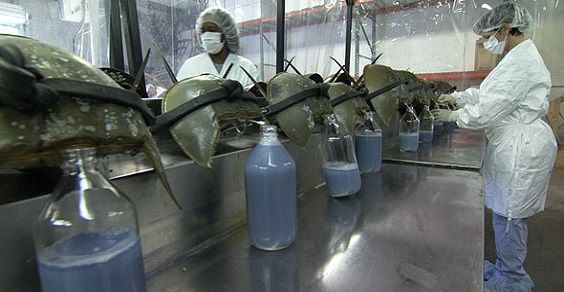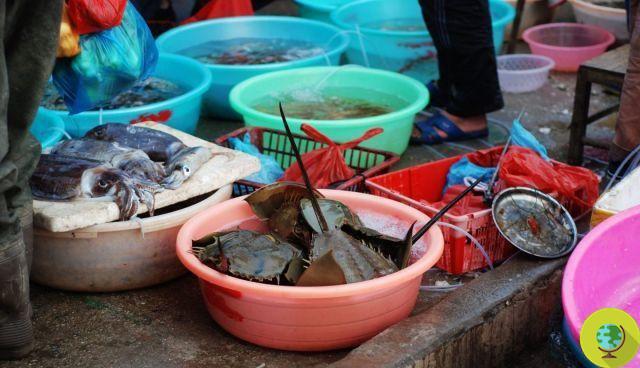King crab entered the list of vulnerable species. Specimens have declined due to the growing demand for his precious blood
He is about to end up run over, his mother saves himIl limulo, known as king crab, officially entered the Red List of animal species of the International Union for Conservation of Nature (IUCN).
Limulus polyphemus has lived on earth since before the dinosaurs and today, after 450 million years, it risks disappearing from the planet due to growing demand for his precious blood.
The limulus is in fact widely exploited to collect the blood liquid, used in the pharmaceutical sector as an indicator of bacterial contamination.
In the 50s, scientists discovered that limulus blood coagulates when it comes in contact with toxins produced by bacteria: this led to the development of an extract called LAL (Limulus amebocyte lysate). used to test surgical equipment, vaccinations and other biomedical industry products.
Despite the very high price, which can exceed 10 thousand dollars per liter, the demand for king crab blood it knows no crisis since today there is a lack of better alternatives.

In China, one of the countries where this animal lives, the development of the biomedical industry increased the demand for limulus blood and in the 80s the country developed its own formulation of LAL in the 80s.
since limulus specimens in the Guangxi region of China have declined alarmingly and the breeding pairs have increased from about 700 thousand to only 40 thousand in the space of 40 years.

Although the animals are not killed for blood but are set free after blood draws, many they bleed to death due to excessive bloodletting.
For the animals to survive, it is necessary to take less than 25% of the total blood and allow the animals to recover the lost blood fluid, before returning them to their habitat.
China currently applies regulations to regulate the exploitation of limulus locally. Laws regulate the number of animals that can be caught and the amount of blood that can be taken. However, many biomedical companies buy blood from unlicensed fishermen who, in order to maximize profits, do not respect the law and the limits imposed by it.
stop the decline of the king crab The Guangxi Ocean Institute has developed a captive breeding program to increase wild populations and since 2013 it releases tens of thousands of limulus cubs into the ocean every year.
Repopulating the Guangxi region remains a difficult undertaking as the specimens grow slowly and reproduce after 20 years: if the demand for blood continues to increase and illegal fishing does not stop, king crabs cannot reach reproductive age, making the work of the Guangxi Ocean Institute useless.
Furthermore, these specimens are also threatened by other factors including tourism and pollution, not to mention the many animals that end up on the tables.
Now that the limulus has officially entered the IUCN Red List it is clear that more needs to be done to save this ancient animal and that concrete answers must arrive from the authorities nationals to protect this species.
Read also:
- Fantastic murals for endangered marine animals (PHOTO)
- 8 ugly endangered animals
- Endangered killer whales and salmon threatened by Trump-approved water plan. Scientific report hidden
Tatiana Maselli
Photo credit: China dialogue Ocean


























